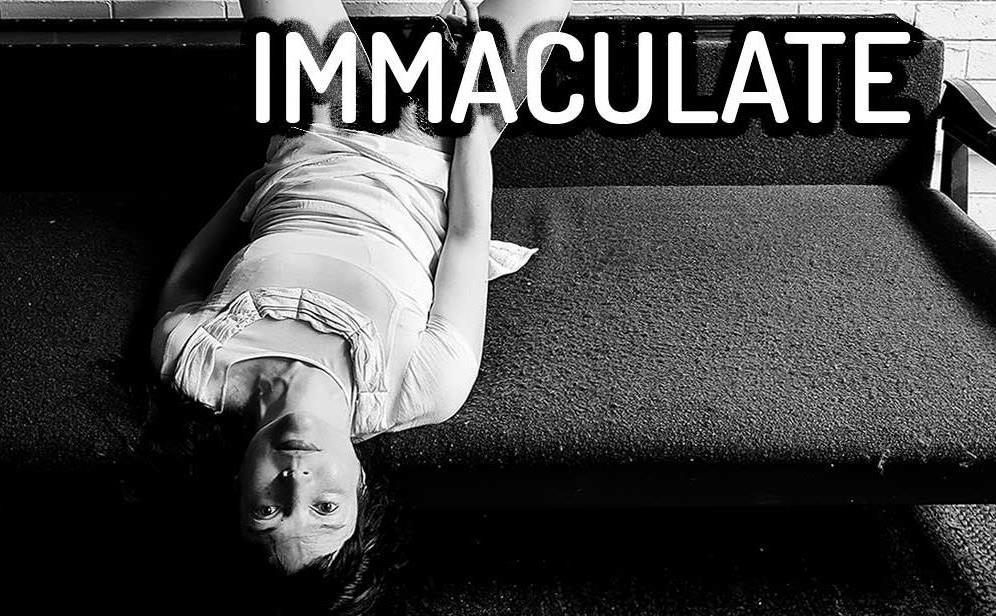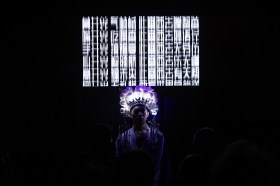In what has been described as an ‘extraordinary intervention’, the Australia Council for the Arts has rescinded a $25,000 grant for performance artist Casey Jenkins’ artwork IMMACULATE, citing ‘the potential legal risk [the project] presents’.
IMMACULATE – which has been misrepresented in some quarters as an attempt to have a child in the name of art – is described by Jenkins as a documentation of their attempt to conceive via self-insemination.
‘I am not trying to conceive as an artwork. I have been trying to conceive for some time and in my artwork IMMACULATE I am simply documenting and presenting the perfectly common, legal and ethical process of self-insemination,’ Jenkins said in a statement.
‘None of the budget for my work that [the] Australia Council funded related to medical appointments, vitamin supplements or anything else connected to the process of trying to conceive – the budget allocated money for things like lighting, live-stream subscription and recording equipment. I was simply funded to document and present a part of my lived experience and a process I’ve been undertaking for some time. That the Australia Council chose to imply differently is deeply offensive to me,’ Jenkins added.
CLAIM AND COUNTER-CLAIM
In addition to citing the ‘potential legal risk’ presented by IMMACULATE, Council has also stated that funding for the project was rescinded because the artwork did not meet the criteria of the peer-assessed career development grant Jenkins was originally awarded.
‘The original grant required variation due to the impact of international travel restrictions arising from COVID-19. The Council received an extremely high volume of contract variation requests due to the pandemic that were expedited quickly and with the commitment of being as flexible as possible. It was in this context that the variation request was approved before being sufficiently reviewed and escalated due to the potential legal risk of IMMACULATE as a new activity. Our process regarding variation requests has since been reviewed and adjusted,’ Council said in a statement.
Jenkins has rejected this suggestion, describing it as ‘misleading and inaccurate in several ways’.
‘Firstly, IMMACULATE was fully approved as a variation to an original grant by Australia Council and I went back to them on my own accord to double check they were fully cognizant of the nature of the work before signing off,’ they said.
‘After my further contact it was escalated higher and checked and approved as a valid variation by managers (plural). Even when Australia Council initially told me (by phone and email two hours before my initial presentation) they were “suspending” my grant they agreed the work was a valid variation of the original, and that their concerns were rather of a (vague, unspecified) legal and ethical nature. Nothing I have done, in the content of my work or my actions, has strayed from what was clearly outlined to Australia Council management before they approved my grant variation,’ Jenkins said.
SUPPORT POURS IN
Support for Jenkins – and criticism of the Australia Council’s decision – has come from a number of quarters, including Port Adelaide-based company Vitalstatistix (which supports experimental and contemporary practice through residencies, creative developments, commissions and presentations) and from the internationally renowned Australian performance artist, Stelarc.
In a letter of support, Stelarc described IMMACULATE as ‘a conceptually and poetically potent action’ and noted: ‘I find it troubling not only that the Australia Council is withdrawing its support for the action, but also insisting that the artist pay back the grant of which [a] significant amount of money has already been spent towards it realisation.’
Stelarc continued: ‘The artist’s performance is not about any immediate utilitarian and social outcome, but rather an act that expresses in an aesthetically pleasing way the right for a female body alone to choose when and how to be inseminated. This act should be one of the contingency rather than because of social pressure.’
IMMACULATE was selected by Vitalstatistix for participation in Adhocracy 2020, the company’s national experimental arts hothouse in September.
Emma Webb OAM, Director, Vitalstatistix, described IMMACULATE as ‘an intimate and durational artwork about transforming and reframing the conception of a child through the lens of queer experience’.
‘We categorically reject the misrepresentation of this work as Casey being paid to become pregnant or the artist having a child as an art project … We selected Casey’s work for participation in Adhocracy from a highly competitive national call for proposals, and we have been delighted to work with this acclaimed Australian artist,’ she said.
Describing IMMACULATE as ‘documenting a deeply personal experience, in line with much of their practice, of the process of becoming pregnant by donor insemination and the artist’s desire to have a very wanted and planned for second child.’ Webb said it was an artwork ‘about an experience that is entirely legal and extremely common yet surrounded by ideological positions as the responses to this work have made abundantly clear.’
Former Vitalstatistix Artistic Director Maude Davey OAM has also written in support of Jenkins, as have a number of other artists.
UNDUE PRESSURE?
Both Jenkins and Vitalstatistix were contacted by the Australia Council on 18 August – the night before IMMACULATE was to have its first public presentation – in relation to the artwork’s ‘ethical considerations and legislative compliance’.
Earlier that same day, a highly negative discussion about the project took place on Sky News between conservative commentator Peta Credlin and Dr Bella d’Abrera from the conservative thinktank the Institute of Public Affairs.
The Australia Council has categorically rejected any suggestion that their decision was based on negative media coverage, or because of government intervention.
However, in a meeting on 28 August between Jenkins, Vitalstatistix and the Australia Council, a Council spokesperson allegedly referred to Prime Minister Scott Morrison’s well-known religious affiliations, according to a timeline of events on the Vitalstatistix website.
‘At that meeting an Australia Council representative made a statement to the effect of “You do know that our Prime Minister is a religious man and could defund the Australia Council.”’
According to Webb, the Australia Council’s decision to break a contract with an artist and rescind its funding of their work has major ramifications for all Australian artists.
‘Artists need to be able to make work about lived experience without fear of having their lives assessed for “incalculable” risk or controversy to the Federal Government,’ she said in a statement.
‘This kind of extraordinary intervention sets a precedent for all artists funded by the Australia Council. It has created an enormous amount of fear and trepidation amongst artists, especially those most vulnerable to these types of attacks … We don’t counter conservative attacks on artistic expression, arts funding and artists by dissolving under pressure and throwing people who could be seen to be at the margins under the bus,’ said Webb.






